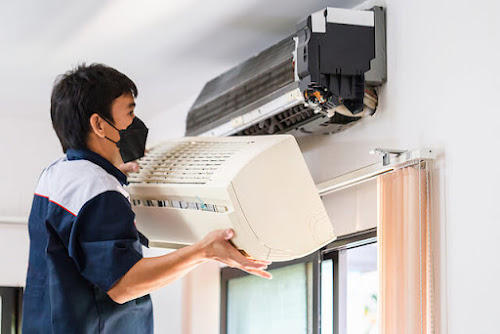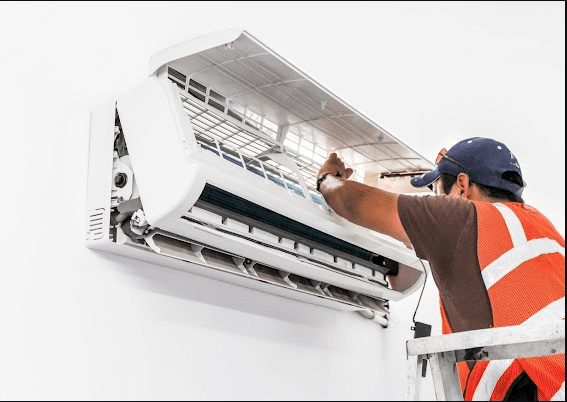Increase Indoor Air Quality with Air Conditioning Installation
Introduction
In today's fast-paced world, ensuring good indoor air quality is essential for maintaining a healthy and comfortable living environment. One effective way to achieve this is through air conditioning installation. In this article, air conditioning installation Melbourne the importance of indoor air quality, the benefits of air conditioning, and how it can significantly improve the overall atmosphere within your home or office. So, let's dive in and discover how air conditioning installation can enhance the air quality around you.
Understanding Indoor Air Quality
Indoor air quality refers to the purity and cleanliness of the air within enclosed spaces, such as homes, offices, or commercial buildings. It plays a crucial role in the health and well-being of the occupants. Poor indoor air quality can lead to various respiratory problems, allergies, and other health issues. Factors that contribute to indoor air pollution include outdoor pollutants, dust, pet dander, chemical fumes, and inadequate ventilation.
The Role of Air Conditioning in Improving Indoor Air Quality
Air conditioning systems offer more than just cooling during hot summer months. They also play a significant role in improving indoor air quality. Here are some ways in which air conditioning installation can enhance the air you breathe:
Filtering and Purifying the Air
Modern air conditioning systems are equipped with advanced filters that can effectively trap and remove dust, pollen, pet dander, and other airborne particles. These filters help to purify the air, reducing the risk of allergies and respiratory problems.
Controlling Humidity Levels
Excessive humidity can create a breeding ground for mold, mildew, and other allergens. Air conditioning systems help control indoor humidity levels, preventing the growth of harmful microorganisms and creating a more comfortable environment.
Eliminating Airborne Allergens
Air conditioning systems with specialized filters can eliminate common allergens, such as pollen and dust mites, from the air. This is especially beneficial for individuals with allergies or asthma, as it reduces the triggers that can worsen their symptoms.
Reducing the Risk of Mold and Mildew
Mold and mildew thrive in damp and poorly ventilated environments. By regulating indoor temperature and humidity, air conditioning systems can prevent the growth of mold and mildew, safeguarding your health and preserving the integrity of your property.
Enhancing Ventilation
Proper ventilation is crucial for maintaining good indoor air quality. Air conditioning systems can improve ventilation by circulating fresh outdoor air and filtering out pollutants. This constant airflow helps to remove stale air and odors, creating a more pleasant and healthy living or working environment.
Energy Efficiency of Modern Air Conditioning Systems
Advancements in technology have led to the development of energy-efficient air conditioning systems. These systems consume less energy while providing optimal cooling and air purification. By installing an energy-efficient air conditioner, you not only enhance indoor air quality but also reduce your energy consumption and utility bills.
Choosing the Right Air Conditioning System
When considering air conditioning installation, it is essential to choose the right system for your specific needs. Factors to consider include the size of the space, the number of occupants, and your cooling requirements. Consulting with a professional HVAC (Heating, Ventilation, and Air Conditioning) technician can help you select the most suitable system for your home or office.
Professional Air Conditioning Installation
To ensure the optimal performance of your air conditioning system, it is crucial to have it professionally installed. HVAC technicians possess the necessary knowledge and expertise to install the system correctly, ensuring proper airflow, optimal cooling, and efficient operation.
Regular Maintenance and Air Filter Replacement
To maintain good indoor air quality and maximize the lifespan of your air conditioning system, regular maintenance is essential. This includes cleaning or replacing air filters as recommended by the manufacturer. Regular maintenance visits by HVAC professionals will help identify and address any potential issues before they escalate.
Tips for Optimal Indoor Air Quality
Besides air conditioning installation, here are some additional tips to improve indoor air quality:
- Keep the space clean and free from dust and debris.
- Use natural cleaning products that are free from harsh chemicals.
- Avoid smoking indoors.
- Minimize the use of strong fragrances and chemical air fresheners.
- Open windows and doors periodically to allow fresh air circulation.
- Keep indoor plants to naturally filter the air.
- Maintain a healthy level of humidity between 30-50%.
- Vacuum regularly using a HEPA (High-Efficiency Particulate Air) filter.
- Avoid excessive clutter that can harbor dust and allergens.
- Common Misconceptions about Air Conditioning
Myth: Air conditioning makes the air too dry.
Fact: While it is true that air conditioning reduces humidity, modern systems have built-in mechanisms to maintain a comfortable humidity level.
Myth: Air conditioning only cools the air.
Fact: Air conditioning systems not only cool but also filter and purify the air, improving indoor air quality.
Myth: Leaving the air conditioner on all day is more efficient.
Fact: It is more energy-efficient to turn off the air conditioner when you are not in the room or when you can rely on natural ventilation.
Conclusion
Improving indoor air quality is crucial for a healthy and comfortable living environment. Air conditioning installation offers numerous benefits by filtering and purifying the air, controlling humidity levels, eliminating airborne allergens, reducing the risk of mold and mildew, and enhancing ventilation. By choosing the right system, having it professionally installed, and maintaining it regularly, you can enjoy improved indoor air quality and a more pleasant living or working environment.
FAQs (Frequently Asked Questions)
1. How often should I change the air filters in my air conditioning system?
It is recommended to change the air filters every 1-3 months, depending on the manufacturer's guidelines and the level of air pollution in your area.
2. Can air conditioning help with reducing odors in the house?
Yes, air conditioning systems help to circulate fresh air and filter out odors, resulting in a more pleasant-smelling indoor environment.
3. Does air conditioning improve sleep quality?
Yes, maintaining a cool and comfortable temperature in your bedroom with air conditioning can promote better sleep quality.
4. Can air conditioning systems help with reducing allergies?
Yes, air conditioning systems with specialized filters can effectively remove allergens from the air, reducing the triggers for allergies and asthma.
5. How long does an air conditioning installation typically take?
The duration of air conditioning installation can vary depending on factors such as the complexity of the system, the size of the space, and any necessary modifications. On average, installation can take anywhere from a few hours to a couple of days.


Comments
Post a Comment